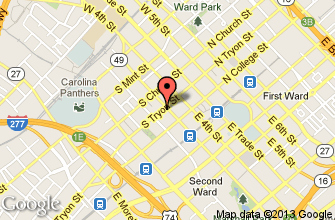News Room
PrintMcNair Class Action Alert: Unaccepted Settlement OffersFebruary 3, 2016
Recently, the United States Supreme Court issued its ruling in Campbell-Ewald v. Gomez, holding that an unaccepted settlement offer does not moot a plaintiff's case. In Campbell-Ewald, the plaintiff, an individual, brought a class action against the defendant, a marketing company, alleging that the defendant violated the Telephone Consumer Protection Act ("TCPA") by sending an unsolicited text to his cell phone and to the cell phones of over 100,000 others. The TCPA provides for statutory damages of $500 per violation, which may be trebled if the plaintiff can prove the defendant acted willfully. The defendant made a settlement offer to the plaintiff of $1,503, more than he could have individually recovered through the lawsuit, but the plaintiff did not accept the offer.
The issue before the Court was whether the defendant's unaccepted offer mooted the case, thus depriving the district court of jurisdiction to entertain the plaintiff's individual claims, and the uncertified class claims. The majority (Justices Ginsburg, Kennedy, Breyer, Sotomayor and Kagan) held it did not, analogizing the situation to an offer without acceptance under "basic principles of contract law." Justice Thomas concurred on separate grounds.
Chief Justice Roberts, joined by Justices Scalia and Alito, dissented. The dissent would have held that "when a plaintiff files suit seeking redress for an alleged injury, and the defendant agrees to fully redress that injury, there is no longer a case or controversy for purposes of Article III." In other words, in the dissent's view, a settlement offer that gives the individual plaintiff everything he was seeking in the lawsuit renders the case moot, even if the plaintiff does not accept the offer. The dissent reasoned that the question "is not whether there is a contract," but rather "whether there is a case or controversy." According to the dissent, there is no case or controversy if the plaintiff is offered everything he is seeking.
The majority left open one crucial issue: whether the result would have been different if the defendant had deposited the full amount of the plaintiff's individual claim in an account payable to the plaintiff, such as the plaintiff's attorney's escrow account. The majority suggested that this fact would only change the outcome if the district court also entered a judgment against the defendant for the amount deposited, but it did not actually reach that holding. The dissent seized on this ambiguity in the majority's holding to argue that depositing the full amount of the plaintiff's claim would alone be sufficient to moot the case, and Justice Thomas's concurrence suggested that this fact could make a difference for him as well.
The upshot of Campbell-Ewald is that, although it is clear that defendants in a class action may not moot the case by making a settlement offer to the named plaintiff if the named plaintiff does not accept, it is still an open question whether a defendant may moot the case by depositing the full amount of the named plaintiff's claim in an account payable to the plaintiff.
On remand, it is likely that the defendant in Campbell-Ewald will deposit the $1,503 it originally offered into an account payable to the plaintiff and again argue that the case is moot, so this will be an important case to watch to determine whether this tactic will be available to class action defendants.




















